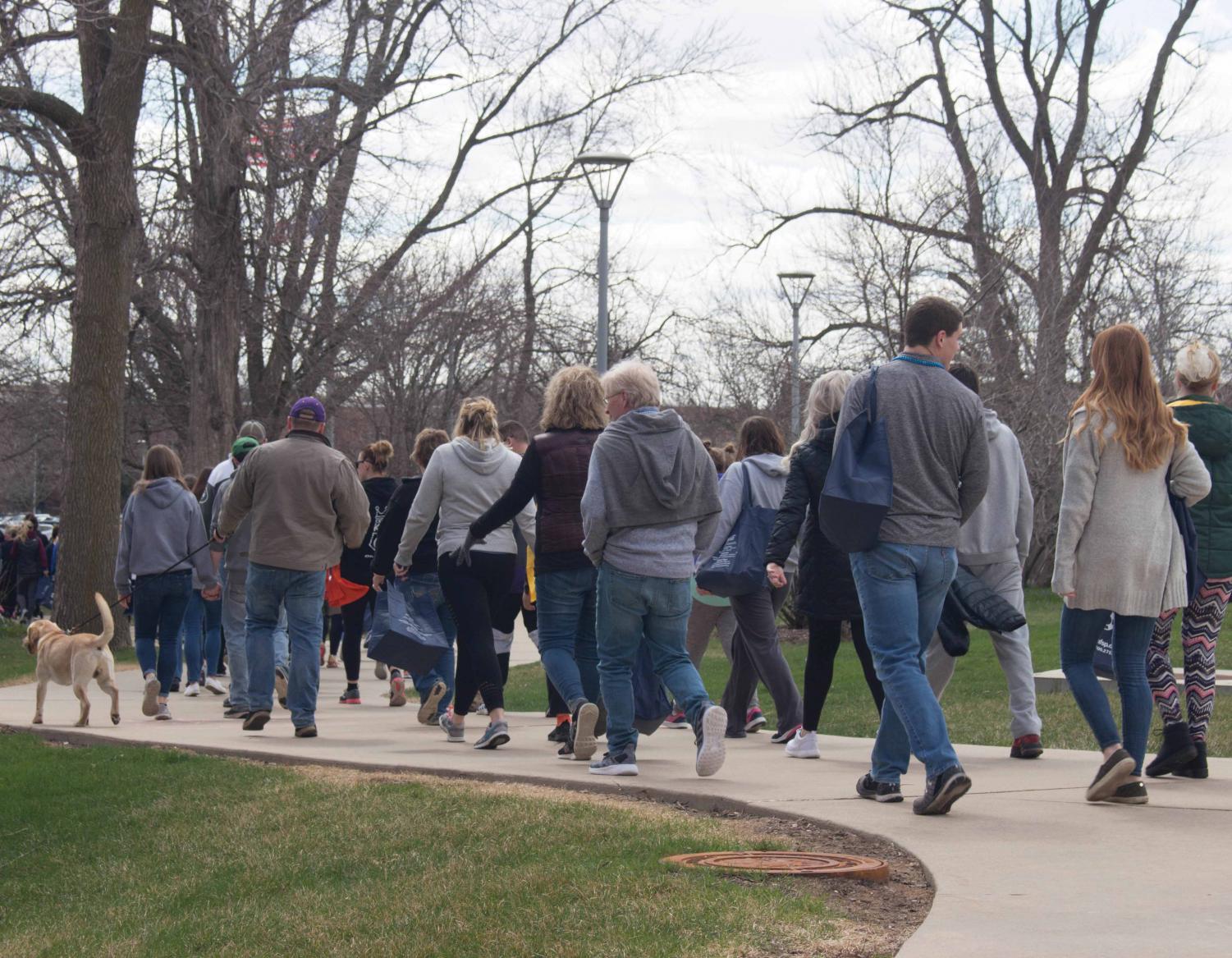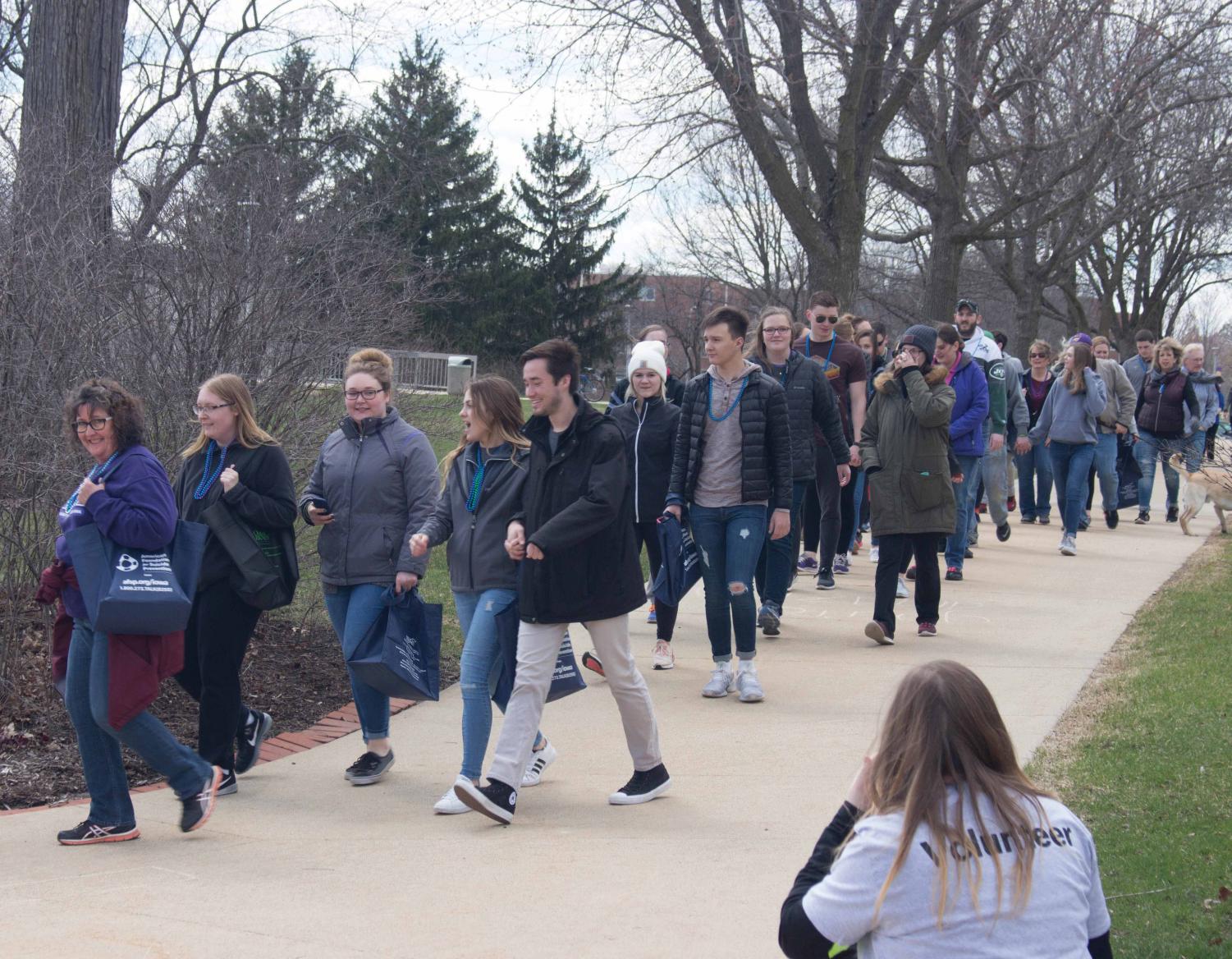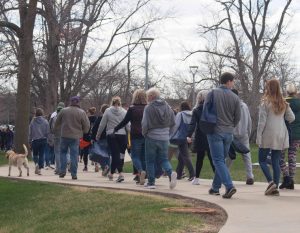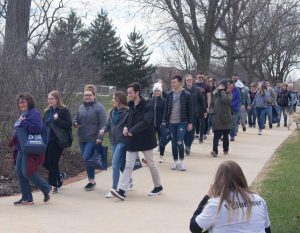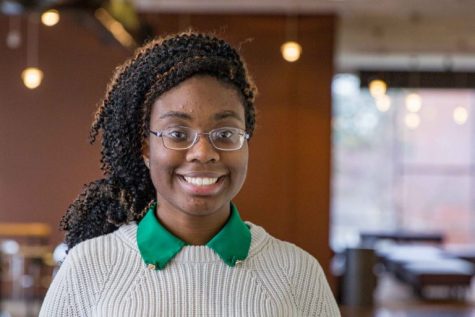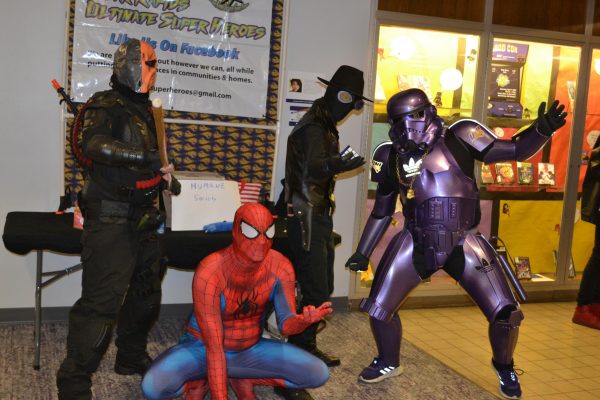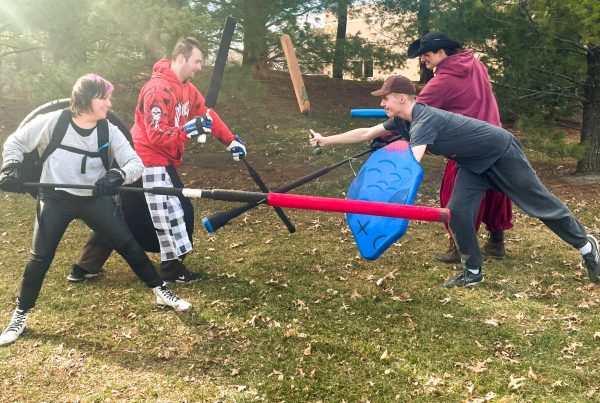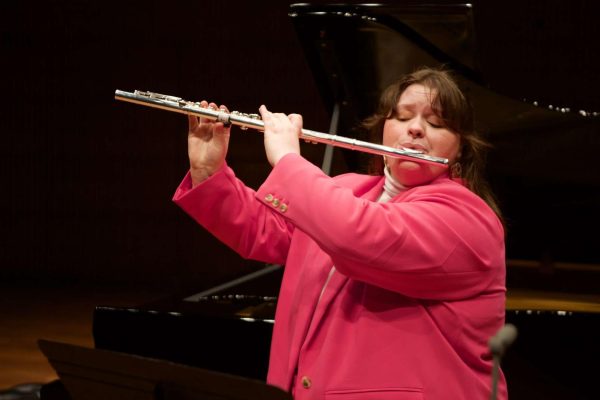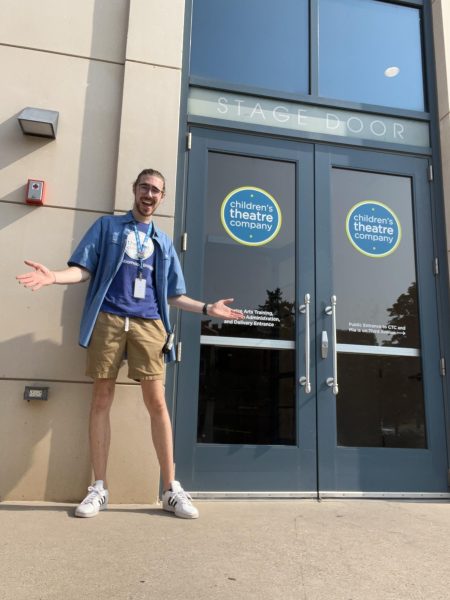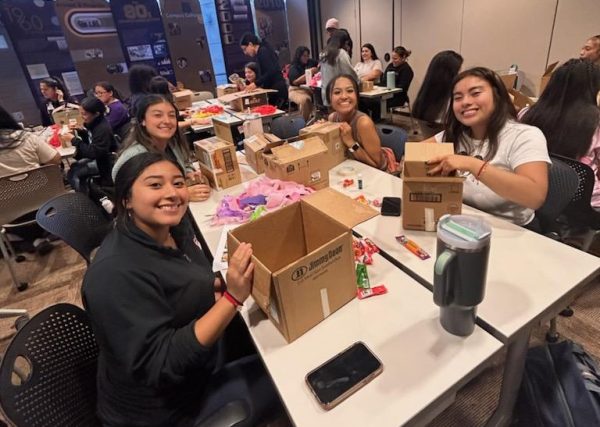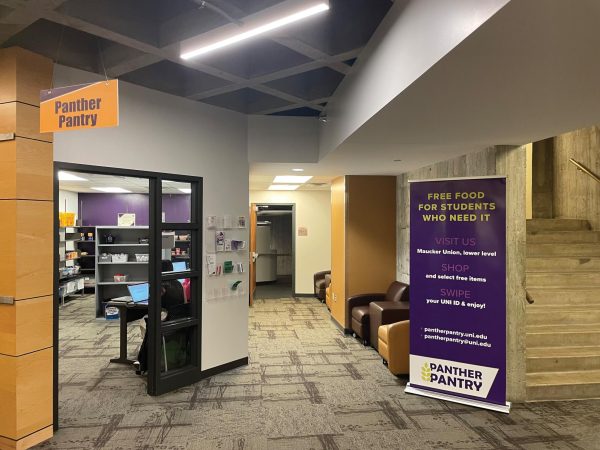Walking out of the darkness for suicide prevention
Apr 18, 2019
This story contains content about suicide that some readers may find disturbing. Discretion is advised.
“There’s a proverb that offers, tell me a fact and I will learn it. Tell me the truth and I shall believe it. But tell me a story, and it will live in my heart,” said Michael Zibilich, keynote speaker from Active Minds at the Out of Darkness Walk for Suicide Prevention. “Today I hope to tell you a story that will touch your heart, your mind and your soul. A tragic and personal story. A story about suicide. A subject not easy to talk about, or frankly, to listen to.
“It is however, a necessary story. A story that has but one simple clear objective today. To make you a first responder in your life and in those you know and love.”
This past Sunday, April 14, Cedar Falls community members gathered for the Out of the Darkness Walk for Suicide Prevention. The event offered professional resources for those struggling or wanting to help support those struggling with mental health issues, as well as raise money for mental health services.
This year, the organizers set the goal of raising $25,000. That goal was reached by Sunday before the walk even started, according to Steven Dreesman, graduate student and event organizer. Overall, the event surpassed their goal and raised $26,170, which will be divided into funding mental health research, programs and advocacy on the federal and state levels through the American Foundation for Suicide Prevention.
Many of those coordinating and volunteering at the event were UNI students in graduate school for clinical psychology and members of the Upsilon Nu Iota chapter of Chi Sigma Iota, an international honor society for professional counselors. Committee members included Sam Galema, Jamie Dhabalt, Hailie Carlson, Porsha Ishbell and Chelsea Siefken.
This year’s event featured more interactive resources for people to become more educated on mental health. One activity was a tent filled with different colored walls to show attendees the scientific side of mental health issues. There were also massages, crafting stations and games for all ages.
Another key goal of the event was to de-stigmatize mental health issues. One way that attendees were encouraged to do so was by choosing colored beaded necklaces to wear. Each color represented a story: White for the loss of a child, purple for the loss of a relative or friend, green for a personal struggle and many more colors which are described on the American Foundation for Suicide Prevention website’s for the event.
The keynote speaker wore white beads to represent his story.
Zibilich’s son, Michael “Kellar” Zibilich, committed suicide April 21, 2012 as a second semester freshman at Louisiana State University. The elder Zibilich is a commercial real estate executive who lives with his wife Gayle in Atlanta, Ga. Since the death of his son, Zibilich has become a strong advocate for mental health and has worked with Active Minds for the past four years as a professional speaker.
“I’m here this afternoon not as a psychologist, psychiatrist or philosopher. Not as a priest, decon or rabbi. But as a father who lives every hour of the day with the tragic consequences of a wonderful life taken as quickly and as suddenly as a lightning strike,” Zibilich said.
Zibilich described his son as a happy person engaged in his community. He was a leader in his fraternity Sigma Chi and enjoyed white water sports. He was also very close to his parents. Zibilich explained that despite having close relationships with friends and family, it is fairly common for people to not discuss mental health crises with their family. Although Zibilich’s son did not leave a note, he said suicidal thoughts can be triggered by an acute mix of anxiety and depression.
According to Zibilich, people who commit suicide are not selfish or weak, but feel burdened. They are not seeking to die, but to find a solution to their suffering. Suicide is then a temporary solution to a temporary problem, and Zibilich emphasized that most people struggling have a treatable mental health disorder.
“Mental health, just like physical health, is for everyone,” Zibilich said.
In talking about his son, Zibilich described two missed opportunities to save his life. One was when he had an anxiety attack while with friends the night prior to his attempt. His friends at the time were highly concerned by his behaviors and some wanted to call for assistance, but others saw it as an anomaly, not likely to repeat. Zibilich said knowing the signs of a mental health crisis and taking the proper action and resources to direct people to is crucial.
The second missed opportunity to save Zibilich’s son’s life was in the short hours before his attempt. His son made calls to five hospitals in the area seeking assistance, but did not know the number of the local crisis center. Zibilich encouraged everyone to save the numbers of the local crisis center and national suicide hotline to their phones for themselves and those they love.
The statewide number is 1-800-332-4224 and the nationwide number is 1-800-784-2433.
“This is a call for life. A call to life for awareness, but most importantly through action,” Zibilich said.
Zibilich ended his keynote address by reminding people that this is their one and only life, encouraging them to know the warning signs and respond accordingly.
For special education graduate student Alesha Rettenmeier, the keynote speech affected her deeply.
“I haven’t lost a child, but I have lost a friend,” she said. “And the whole time I was thinking about his mom who was sitting with me, who’s just lost her son. So, it very much hit home, and I think it was a good message overall.”
Rettenmeier was wearing a T-shirt with the image of her friend Zachary “Zach” Rahnavardi and said that she along with a group of others were walking in memory of him. Rahnavardi and Rettenmeier grew up together and were both Cedar Falls community members.
“Now there’s actually a scholarship at Cedar Falls High school and other high schools in his name which is really awesome, the B-Average,” Rettenmeier said.
The B-Average Scholarship, Rettenmeier said, is for students who didn’t always get straight A’s in school.
First year clinical psychology graduate student Jordan Newburg said she appreciated that the keynote speaker was not a professional in the field.
“Sometimes I think people just want to hear that personal story and they don’t want it to come from a professional that might be intimidating,” Newburg said.
Students seeking help can visit the UNI counseling center, call 319-27-2676 and press 2 for crisis counseling or text HELLO to the crisis number 741741 at any time at any time.


